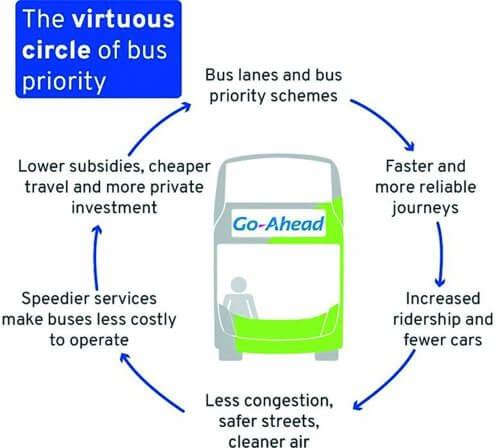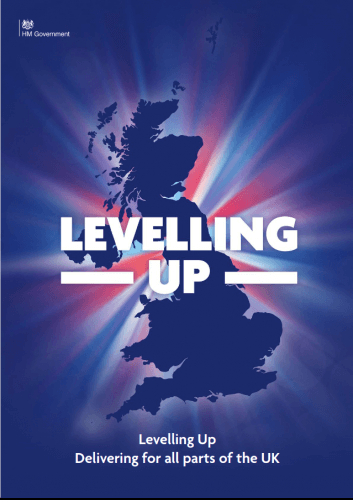On 2 February the Levelling Up Secretary Michael Gove unveiled the Government’s ‘Levelling Up’ white paper. This document sets out a plan to transform the UK by spreading opportunity and prosperity to all parts of it.
The white paper will set out a complete ‘system change’ of how Government works that will be implemented to level up the UK. At the heart of this new way of making and implementing policy will be 12 national missions, all quantifiable and to be achieved by 2030. These missions form the policy objectives for levelling up, and will therefore be at the heart of the Government’s agenda for the 2020s.
The Government says it will fund ‘ambitious plans’ for bus improvements in areas where this can make the most impact, including the mayoral city-regions, Stoke-on-Trent, Derbyshire and Warrington. By 2030, one of the 12 missions will see the rest of the country’s local public transport systems becoming much closer to London standards.
The Government says it recognises that if it tries to level up the UK alone, it will fail, which is why the white paper details the largest devolution of power from Whitehall to local leaders across England in modern times. It said it recognises the strong local leadership mayors like Andy Street, Ben Houchen and Andy Burnham have shown, and wishes to replicate this success across England. Fundamental to this ‘devolution revolution’ will be a new model for England with more mayors for those areas that want one.
Levelling Up Secretary Michael Gove said: “The United Kingdom is an unparalleled success story. We have one of the world’s biggest and most dynamic economies. But not everyone shares equally in the UK’s success. For decades, too many communities have been overlooked and undervalued. As some areas have flourished, others have been left in a cycle of decline. The UK has been like a jet firing on only one engine. Levelling Up and this white paper is about ending this historic injustice and calling time on the postcode lottery.”
A Confederation of Passenger Transport spokesperson reacted to the publication of the Levelling Up white paper by saying: “Today’s white paper is another vote of confidence in the crucial role of buses in supporting the levelling up of local communities by connecting people to local jobs, education opportunities and essential services. The flexibility and affordability of bus travel means it can offer rapid and sustainable solutions to the challenges set out in the white paper. The Government has some critical decisions to make in the coming weeks to ensure that people in every part of the country have the bus network they need to help access jobs, skills and training. This starts with ensuring funding to support networks continues beyond April, and should continue with a sustained, stable programme of investment in bus to match not only the Government’s objectives on levelling up, but also to secure economic recovery from the pandemic and meet the country’s net zero ambitions.”
A spokesperson for FirstGroup added: “We welcome the recognition in today’s Levelling Up white paper for the central role public transport plays in delivering economic growth. The Government’s vision is best delivered through the expertise and innovation of private transport operators. The vital services and connections we provide help to create vibrant and sustainable communities. We look forward to seeing further detail on the plans outlined in the paper, and ensuring the industry continues to progress beyond the pandemic and play its part in levelling up across the UK.”
The Go-Ahead Group reacted by saying: “The levelling up white paper from the UK Government gives welcome recognition to the role of public transport in helping communities succeed. Go-Ahead serves one in four of the levelling up fund’s tier one priority areas in England. For instance, we’ve delivered the first fleet of electric buses in the North East and demand responsive services for rural communities in North Lincolnshire. In Cornwall, we’re proud to have worked with the council to expand local bus services.
“Bus, rail and active travel are vital to unlocking benefits as varied as economic opportunity, environment, public health, and community cohesion. Local authorities need predictable and reliable funding to deliver this vision on the ground. Actions to make public transport the most convenient option need to be prioritised, such as integrated ticketing, simple and affordable fares, and bus priority lanes.”



